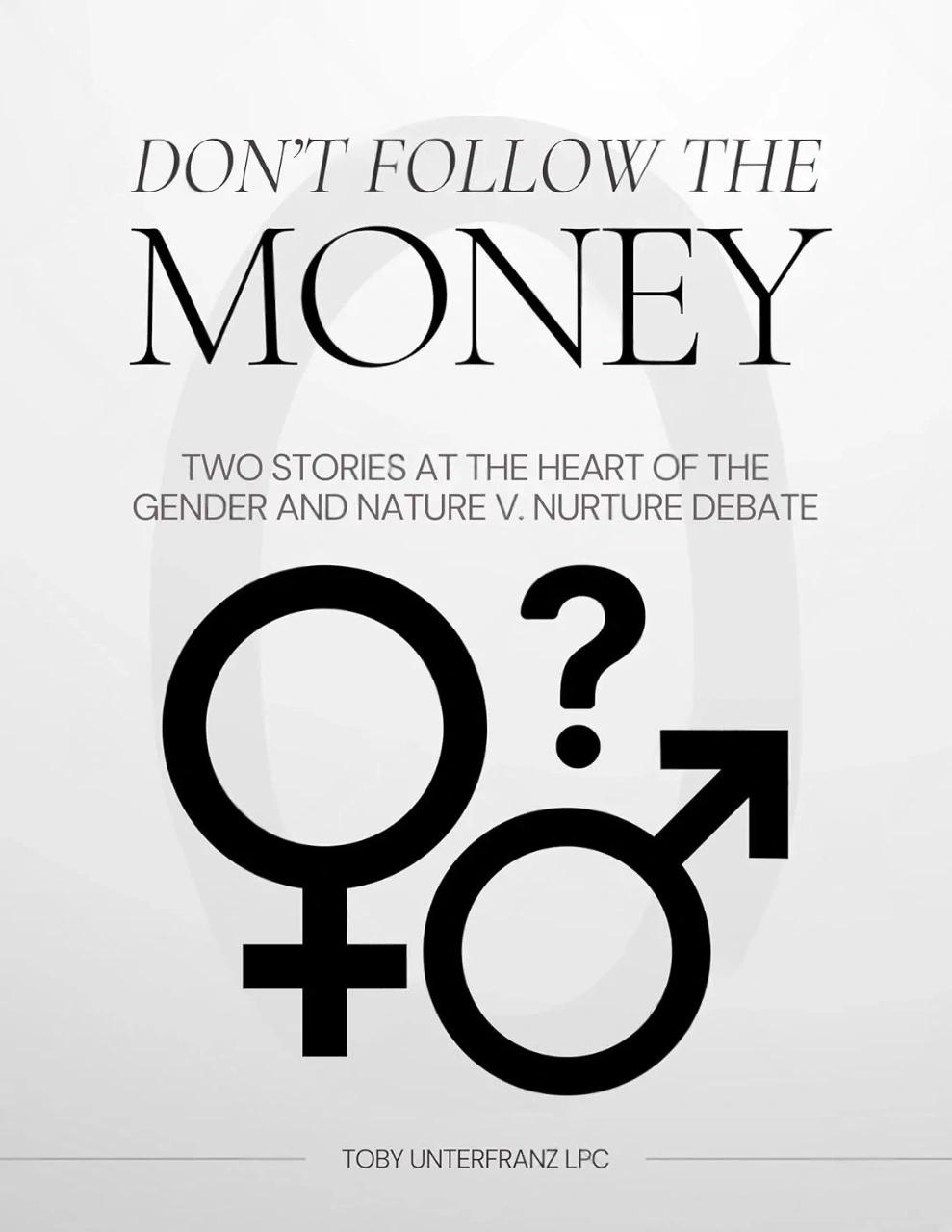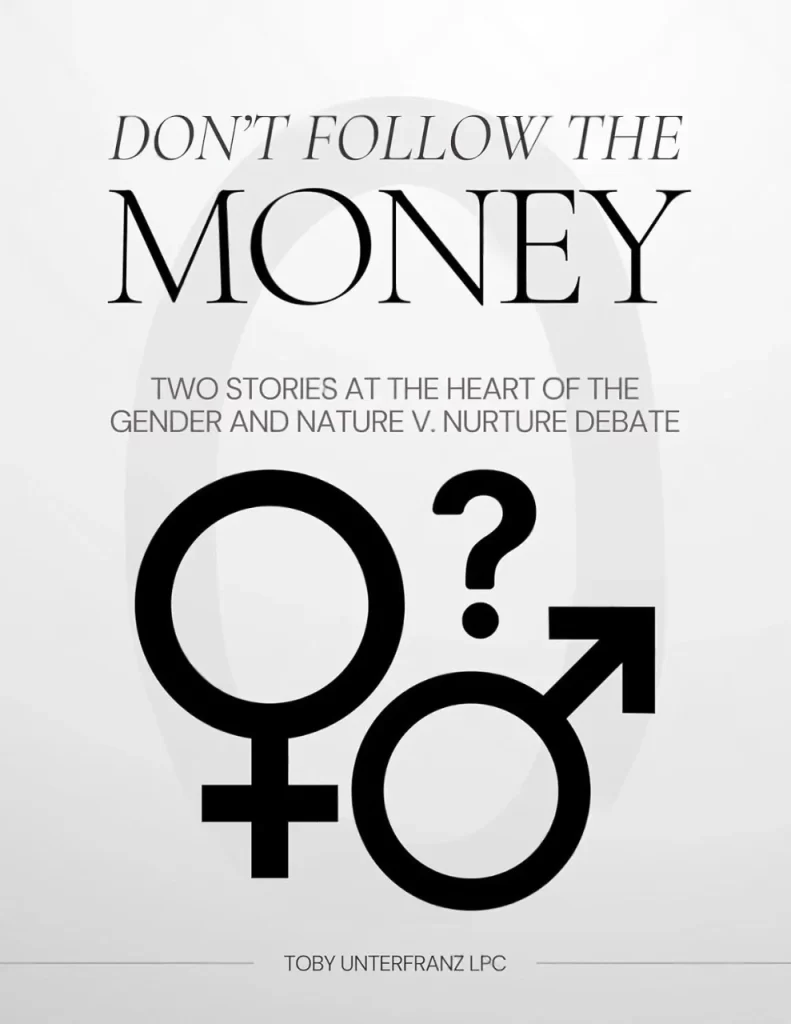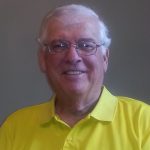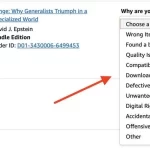Discovering a Story That Stayed With Me
When I picked up Don’t Follow the Money: Stories of Identity, Medicine, and Two Lives That Changed Everything, I thought I’d be reading an intriguing slice of medical history. I wasn’t prepared for what happened next. The book didn’t just tell me two stories—it made me question what I thought I knew about ethics, consent, and the role of medicine in shaping lives.
The author Toby Unterfranz LPC weaves together the tales of David Reimer and Dr. Stanley Biber—two people who never met, yet whose lives speak to each other across decades. One was caught in the grip of medical imposition. The other practiced quiet, life-changing medical affirmation.
David Reimer — A Life Rewritten Without Consent
David’s story gripped me with its quiet tragedy. Born in 1965 in Winnipeg, Canada, he was one of a pair of healthy twin boys until a botched circumcision destroyed his penis. His parents, desperate for a solution, saw a charismatic psychologist, Dr. John Money, on TV.
Dr. Money had a radical belief: gender identity was not fixed at birth but could be shaped entirely by upbringing. He suggested raising David as a girl, with surgeries, hormones, and social conditioning to match. His parents agreed, and Bruce became “Brenda.”
From the start, Brenda resisted everything about her assigned gender—refusing dresses, rejecting makeup, and pushing back against feminine expectations. But the official story claimed she was thriving. Behind closed doors, Brenda endured distress, bullying, depression, and troubling therapy sessions that tried to force her into a role she never identified with.
At fourteen, the truth came out. David reclaimed his male identity, began the difficult process of transitioning back, and later spoke out so no other child would endure what he had. But the scars—emotional and otherwise—were deep. In 2004, after the loss of his twin brother and years of struggle, David ended his own life at 38.
His story is not about being transgender—it’s about what happens when identity is decided for someone, not by them.
Trinidad, Colorado — A Small Town With a Big Legacy
The second story in Don’t Follow the Money offered a striking contrast—and a sense of hope.
In the late 1960s, Dr. Stanley Biber, a general surgeon in Trinidad, Colorado, was approached by a transgender woman seeking gender-confirming surgery. Few, if any, U.S. surgeons would even consider it. Dr. Biber quietly said yes. He learned the procedure, performed it successfully, and word began to spread.
Over the next three decades, thousands of transgender people made their way to Trinidad. Some had saved for years. Others arrived in secrecy, afraid of being recognized. But all found in Dr. Biber a doctor who treated them without judgment.
By the time he retired in 2003, he had performed more than 6,000 surgeries, earning Trinidad the unofficial title of “sex-change capital of the world.” His successor, Dr. Marci Bowers—a transgender woman herself—carried the work forward with the same quiet dedication.
In a time when access to gender-affirming care was rare and often hostile, Trinidad became a sanctuary.
The Thread That Ties Them Together
At first glance, David Reimer’s and Dr. Biber’s stories seem like opposites—one about an identity erased, the other about an identity affirmed. But what unites them is the power of consent.
David never had a say. His body and future were decided for him before he could speak. His distress was dismissed as noncompliance.
Biber’s patients fought to be heard and chose their path with full awareness. Their surgeries weren’t experiments—they were affirmations of an identity they already knew to be true.
Why This Book Matters
When I closed Don’t Follow the Money, I sat with a heavy thought: what if David’s parents had met Dr. Biber instead of Dr. Money? Could his pain have been spared?
The book doesn’t offer easy answers. Instead, it leaves you with a clear truth—medicine can either be a mirror, reflecting who you are, or a mask, hiding it. The difference lies in whether someone listens before they act.
David Reimer’s story warns us of the harm in medical arrogance. The legacy of Trinidad shows the healing power of medical compassion. Somewhere between those truths lies the future of ethical care.
Get eBook Now
Product details
Author : Toby Unterfranz LPC
ASIN : B0FLSTP415
Publisher : Toby Unterfranz LPC
Accessibility : Learn more
Publication date : August 7, 2025
Language : English
File size : 874 KB
Screen Reader : Supported
Enhanced typesetting : Enabled
X-Ray : Not Enabled
Word Wise : Enabled
Print length : 20 pages
Page Flip : Enabled
Reading age : 14 – 18 years

Meet Jessica, our bookworm extraordinaire! She’s an avid reader with a penchant for mysteries and a soft spot for fantasy worlds. Join her in exploring the pages of literary treasures.














